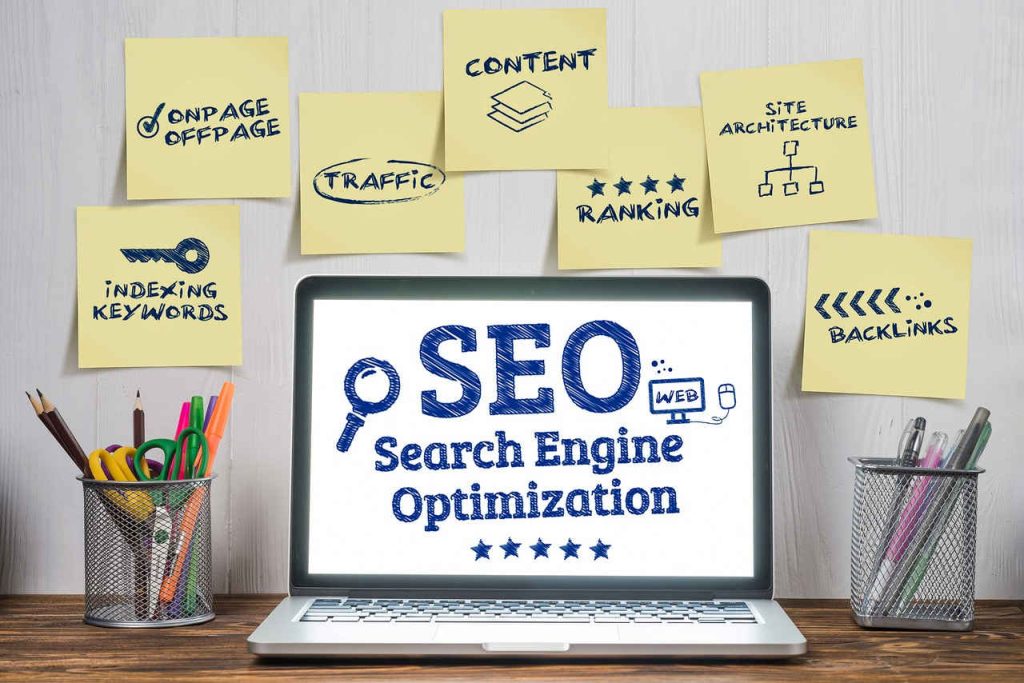By Sofia Coraines

Are you struggling to get your small business noticed online in your local area? You’re not alone. Many small business owners make critical mistakes when it comes to local SEO, unknowingly sabotaging their chances of appearing in those coveted local search results. 😱
But here’s the good news: these mistakes are easily fixable! 🎉 By identifying and correcting these common local SEO errors, you can dramatically improve your visibility to potential customers in your area. Whether you’re a cozy coffee shop, a boutique retail store, or a local service provider, mastering local SEO can be the game-changer your business needs.
In this blog post, we’ll dive into the top 5 local SEO mistakes that small businesses frequently make. More importantly, we’ll show you how to fix them, giving your business the local online boost it deserves. From optimizing your Google Business Profile listing to building a strong local link profile, we’ve got you covered. Let’s turn those local SEO blunders into opportunities for growth!

Neglecting Google Business Profile Optimization
One of the most critical local SEO mistakes small businesses make is neglecting their Google Business Profile (GBP). Optimizing your GBP listing is essential for improving your local search visibility and attracting potential customers. Let’s explore the common pitfalls and how to address them:
A. Incomplete or inaccurate business information
Many small businesses fail to provide complete and accurate information on their GBP profile. This oversight can severely impact your local search ranking and customer trust. To fix this:
- Ensure all basic information is filled out (name, address, phone number, website)
- Add your business hours, including special holiday hours
- Include high-quality photos of your business, products, or services
- Write a compelling business description that includes relevant keywords
B. Overlooking category and attribute selection
Choosing the right category and attributes for your business is crucial for appearing in relevant local searches. To optimize this aspect:
- Select the most accurate primary category for your business
- Add additional relevant categories if applicable
- Fill out all available attributes to provide more detailed information about your business
| Importance | Action Item |
|---|---|
| High | Select accurate primary category |
| Medium | Add relevant secondary categories |
| High | Complete all applicable attributes |
C. Not utilizing GBP posts and updates
GBP posts are an excellent way to keep your profile fresh and engage with potential customers. To leverage this feature:
- Share regular updates about your business, products, or services
- Create posts for special offers, events, or announcements
- Use eye-catching images in your posts to increase engagement
- Include relevant calls-to-action (CTAs) in your posts
D. Failing to respond to customer reviews
Customer reviews play a significant role in local SEO and consumer decision-making. Neglecting to respond to reviews can harm your online reputation. To improve in this area:
- Set up notifications for new reviews
- Respond promptly to all reviews, both positive and negative
- Thank customers for positive feedback
- Address negative reviews professionally and offer solutions
By addressing these common Google Business Profile optimization mistakes, small businesses can significantly improve their local search visibility and attract more customers. Now that we’ve covered GBP optimization, let’s move on to another critical aspect of local SEO: incorporating local keywords into your content strategy.

Ignoring Local Keywords in Content Strategy
Incorporating local keywords into your content strategy is crucial for small businesses looking to improve their local SEO. Many businesses make the mistake of overlooking this vital aspect, which can significantly impact their search visibility and customer reach. Let’s explore the common pitfalls and how to address them.
A. Inconsistent use of local keywords across web pages
One of the biggest mistakes small businesses make is inconsistently using local keywords across their website. This inconsistency can confuse search engines and potential customers alike. To fix this:
- Conduct thorough keyword research to identify relevant local terms
- Create a list of primary and secondary local keywords
- Consistently use these keywords across all web pages, including titles, headings, and content
B. Failing to optimize for “near me” searches
With the rise of mobile searches, “near me” queries have become increasingly popular. Many small businesses overlook this trend, missing out on potential local customers. To capitalize on “near me” searches:
- Include phrases like “near me” or “in [city name]” in your content and meta descriptions
- Optimize your Google Business Profile listing with accurate location information
- Encourage customers to leave reviews mentioning your location
C. Neglecting location-specific search terms
Small businesses often focus on their products or services without considering location-specific terms. This oversight can result in missed opportunities to attract local customers. To address this:
- Incorporate location-specific terms in your content (e.g., neighborhoods, landmarks, local events)
- Create location-specific landing pages for different service areas
- Use local schema markup to provide search engines with detailed location information
D. Focusing solely on broad, generic keywords
While broad keywords are important, they often face stiff competition. Small businesses should balance broad terms with more specific, local keywords. Here’s how to strike the right balance:
| Broad Keyword | Local Keyword |
|---|---|
| Coffee shop | Best coffee shop in [City Name] |
| Plumber | Emergency plumber in [Neighborhood] |
| Yoga classes | Beginner yoga classes in [City Name] |
By incorporating these local keyword strategies, small businesses can significantly improve their local SEO performance and attract more relevant, local customers. Remember, a well-optimized local content strategy is key to standing out in your local market and outperforming competitors.

Inconsistent NAP Information Across the Web
Maintaining consistent NAP (Name, Address, Phone number) information is crucial for local SEO success. Many small businesses underestimate the impact of inconsistent NAP data, which can significantly hinder their local search visibility. Let’s explore the common pitfalls and how to address them:
A. Failing to claim and manage local citations
Local citations are mentions of your business across the web, including directories, review sites, and social media platforms. Neglecting to claim and manage these citations can lead to inaccurate or outdated information.
How to fix:
- Conduct a citation audit
- Claim unclaimed listings
- Update and verify information
- Use citation management tools
B. Overlooking industry-specific directories
While general directories are important, industry-specific directories can provide valuable targeted exposure and backlinks.
| Industry | Example Directories |
|---|---|
| Restaurants | Yelp, TripAdvisor, OpenTable |
| Healthcare | Healthgrades, RateMDs, Vitals |
| Home Services | HomeAdvisor, Angie’s List, Houzz |
C. Neglecting to update information after business changes
Business details can change over time, such as relocations, phone number updates, or rebranding. Failing to update this information across all platforms can confuse potential customers and search engines.
Steps to maintain consistency:
- Create a master list of all citation sources
- Set up alerts for your business name
- Regularly audit and update information
- Communicate changes to customers proactively
D. Conflicting business details on different platforms
Inconsistencies in business information across various online platforms can erode trust with potential customers and negatively impact local search rankings.
To address this issue:
- Standardize your NAP information
- Use a consistent format across all platforms
- Regularly review and update your online presence
- Consider using schema markup on your website
Maintaining consistent NAP information is essential for establishing trust with both search engines and potential customers. By addressing these common mistakes, small businesses can significantly improve their local search visibility and attract more local customers.

Poor On-Page Optimization for Local Search
On-page optimization is crucial for local search success, yet many small businesses overlook its importance. Let’s explore common mistakes and their solutions:
A. Failing to create location-specific landing pages
Location-specific landing pages are essential for targeting local customers. Here’s why:
- Improves local search visibility
- Provides relevant information for each service area
- Increases chances of ranking for location-based keywords
Solution: Create dedicated pages for each location or service area, including:
- Local contact information
- Area-specific testimonials
- Relevant local content
B. Lack of local schema markup implementation
Schema markup helps search engines understand your business information better. Neglecting it can result in:
- Missed opportunities for rich snippets
- Lower click-through rates in search results
- Reduced local search visibility
Solution: Implement local schema markup, including:
| Schema Type | Information to Include |
|---|---|
| LocalBusiness | Business name, address, phone number |
| GeoCoordinates | Latitude and longitude |
| OpeningHours | Business hours for each day |
| Review | Customer reviews and ratings |
C. Neglecting to optimize header tags (H1, H2, etc.)
Proper header tag optimization is crucial for both user experience and SEO. Common mistakes include:
- Using generic headers
- Inconsistent header hierarchy
- Missing location-specific keywords in headers
Solution:
- Use unique, descriptive H1 tags for each page
- Include location and service keywords in H2 and H3 tags
- Maintain a logical header structure
D. Missing location-specific title tags and meta descriptions
Title tags and meta descriptions are your first impression in search results. Failing to optimize them for local search can lead to:
- Lower click-through rates
- Missed opportunities to rank for local keywords
- Decreased relevance for local searches
Solution:
- Include location and service keywords in title tags
- Write compelling meta descriptions with local intent
- Ensure each page has unique, locally-optimized metadata
By addressing these on-page optimization issues, small businesses can significantly improve their local search performance and attract more targeted traffic.

Underestimating the Power of Local Link Building
Local link building is a crucial aspect of SEO that many small businesses overlook. By neglecting this powerful strategy, businesses miss out on valuable opportunities to improve their local search rankings and attract more customers. Let’s explore some common mistakes and how to fix them:
A. Ignoring the potential of user-generated content
User-generated content (UGC) is a goldmine for local link building. Encourage customers to leave reviews, submit photos, or create content related to your business. This not only builds trust but also generates valuable backlinks.
B. Not engaging with local online communities and forums
Local online communities and forums are excellent platforms for building relationships and acquiring backlinks. Participate in discussions, offer valuable insights, and share your expertise to establish your business as a local authority.
C. Overlooking opportunities for local press coverage
Local press coverage can significantly boost your link profile. Here’s a comparison of effective strategies:
| Strategy | Benefits | Effort Required |
|---|---|---|
| Press releases | Wide distribution | Medium |
| Local event sponsorships | Community engagement | High |
| Expert interviews | Establish authority | Low |
D. Failing to leverage local events and sponsorships
Local events and sponsorships offer excellent opportunities for link-building. Consider:
- Sponsoring local sports teams
- Participating in charity events
- Hosting community workshops
These activities not only generate backlinks but also increase brand visibility and community goodwill.
E. Neglecting partnerships with local businesses and organizations
Collaborating with other local businesses and organizations can lead to mutually beneficial link-building opportunities. Some ideas include:
- Cross-promotions
- Guest blogging
- Joint ventures or co-hosted events
- Shared resource pages
By addressing these local link-building mistakes, small businesses can significantly improve their local SEO performance and attract more customers in their area. Next, we’ll recap the key takeaways from all five local SEO mistakes and provide actionable steps for improvement.

Local SEO is a critical component of any small business’s digital marketing strategy. By avoiding common pitfalls such as neglecting Google Business Profile optimization, ignoring local keywords, maintaining inconsistent NAP information, poor on-page optimization, and underestimating local link building, businesses can significantly improve their local search visibility.
To enhance your local SEO efforts, start by optimizing your Google Business Profile, incorporating local keywords into your content strategy, and ensuring your NAP information is consistent across all online platforms. Focus on improving your website’s on-page elements for local search and invest time in building quality local backlinks. By implementing these strategies, your small business can overcome common local SEO mistakes and gain a competitive edge in your local market.
Local SEO Frequently Asked Questions
1. What is local SEO?
Local SEO is the practice of optimizing your online presence to attract customers searching for businesses in your local area. This can involve optimizing your website, managing your Google Business Profile, and building citations across relevant online directories. By making sure your business information is accurate, consistent, and targeted towards local keywords, you increase your chances of showing up in search results for people searching for what you offer nearby.
2. Why is local SEO important for my small business?
Most people searching online are looking for local businesses, and local SEO helps them find yours! Imagine someone searching for “best plumber near me” – local SEO helps your plumbing business appear at the top of those results, driving more qualified leads your way.
3. How can local SEO help me increase leads and sales?
By improving your local ranking, you’ll appear higher in search results, leading to more website visits and calls from potential customers actively searching for your services in your area. The higher you rank, the more likely people are to click on your business listing and contact you.
4. How can I improve my local SEO ranking myself?
While DIY is possible, it can be time-consuming. Consider a free consultation with a local SEO expert to see if they can help you develop a customized strategy and achieve faster results. A local SEO consultant can provide valuable insights and ensure you’re implementing the latest tactics for optimal results. They can also save you time and effort, allowing you to focus on running your business.
5. How long does it take to see results from local SEO?
While results can vary depending on the competitiveness of your local market and the current state of your local SEO efforts, you may start seeing improvements in local search visibility within a few weeks, with significant progress in 3-6 months with consistent effort. Local SEO is a marathon, not a sprint. However, with ongoing optimization and content creation, you can expect to see a gradual increase in local search ranking and website traffic over time.
